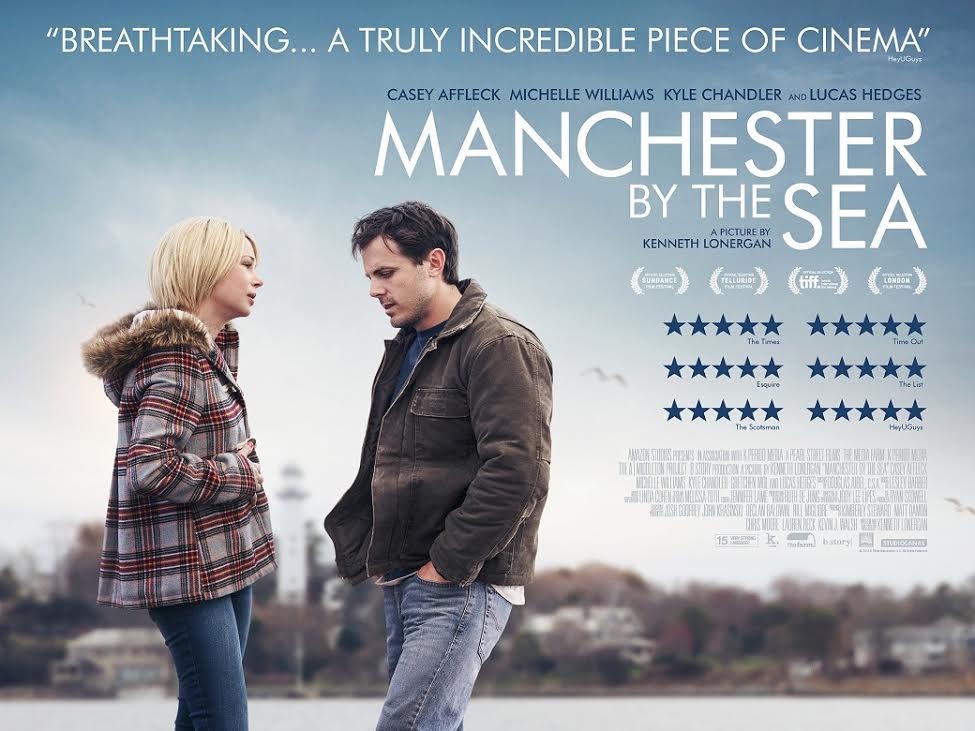It’s Oscar time again and not since 2009’s face off between Avatar and The Hurt Locker has their been such a tight race between two top contenders for best picture. Though there are many heavy hitters this year such as Fences with Denzel Washington and the controversial Moonlight with a line up of underdog actors such as Mahershala Ali, Manchester By The Sea and La La Land have received the most buzz by far.
Having seen both films, I will be surprised come the opening of that envelope on Sunday if writer/director Kenneth Lonergan is not on that stage accepting the best picture award on behalf of his magnum opus, Manchester By The Sea. Prior to this Lonergan has had mid-level success with writing the screenplay for Analyze This and Margaret, however, the pinnacle of his success to date has been on the stage with his play This Is Our Youth. With Manchester, Lonergan has kept too many of his staple ingredients such as comedic wit intermingled with extremely dramatic situations, uniquely difficult problems characters must face and overcome together rather than alone, and stars who do not fail to deliver.
Casey Affleck who plays Longergan’s lead character, Lee Chandler brings to life a man who long ago stopped living. Lee spends his days doing self-inflicted penance for a crime he committed. One that we, the audience, will be nail-bitingly wondering about until the middle of the film. In Boston, Lee has made a home in the building where he is a super for unappreciative tenants, and most of his nights are spent alone. An underlying rage emerges when he chooses to go to the local bars to drink and fight. We are immediately sorry for this man and wonder how he arrived at such a nonexistence. He is a man who is surrounded by people yet has no personal interactions and he likes to keep it this way.
Only when his brother passes, leaving him as the named guardian of his nephew, Patrick, brilliantly played by the relatively unknown Lucas Hedges, is Lee forced to return home to Manchester, the scene of his crime. It is evident that his brother intended for Lee to have to grapple with his past. The brother had a long-time heart disease and had anticipated early death, and with that may have either sub-consciously or consciously orchestrated for Lee to be revived in the process. We spend the entire film on Lee’s journey asking the question along with him of whether or not he can confront his past, make changes and lead a real life again for the sake of Patrick.
Manchester By The Sea delivers in ways that all best pictures should. It takes you on a roller coaster ride of emotion by quickly endearing you to the characters, the filming is the stuff of fine art and is well crafted with a mixture of flashbacks and current day. It is a slice of a life that plays out more like a symphony than simply a film. Lonergan no doubt intended this as he used elegant, classical music throughout as the soundtrack for his inelegantly gritty story. The use of sparse dialogue along with sneaky subtext will be used as a how to example in film school classes for years to come. In no way does this film come up short.
Though La La Land is a feat of achievement in the way it has brought back the beloved musical style of long ago, it does not have the real life relevance that Manchester brings to the screen. Comparing the two is problematic in that it is contrasting an imaginative fantastical film against a raw realistic one. If the Oscar judges decide they’d like to honor a cinematic road map for how to come back from the dead, then Manchester By The Sea has it in the bag. Until Sunday…












